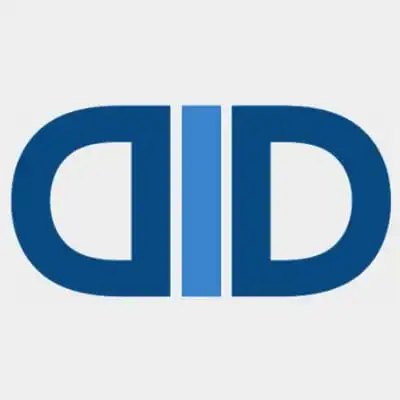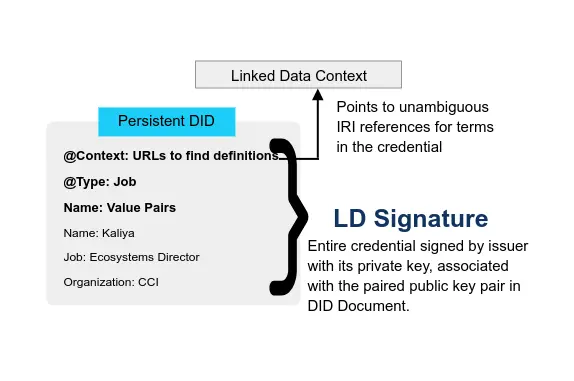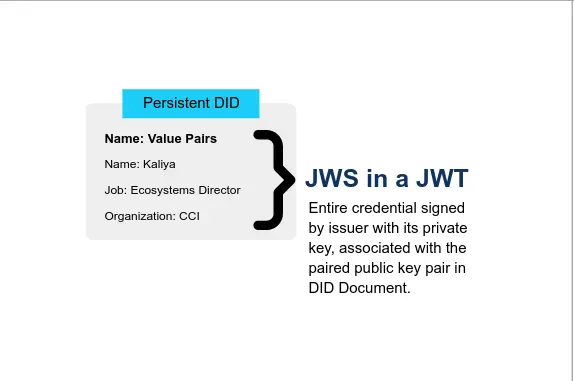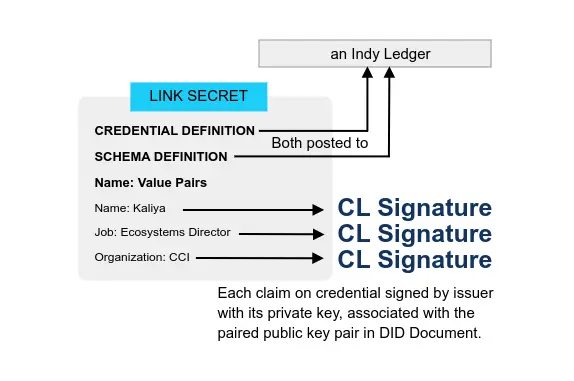Decentralization and Self Sovereign Identity
Explainer
- The Web3 Decentralization Debate Is Focused on the Wrong Question 2022-05-22 Wired
Fixating on the degree—rather than the type—of decentralization is leading us astray
- Decentralization is the Future of Digitization 2022-05-29 Jolocom
In Germany, for example, the federal government initially decided to store data from the nation’s Corona-Warn app on centralized servers, as reported by Reuters in April 2020. In response, multiple stakeholders like the Chaos Computer Club (CCC) loudly criticized the plans and the resulting public outcry forced the government to reconsider. The fact that the government heard the criticisms, re-evaluated its proposals and opted for a decentralized version of its Corona app instead – one where data will only be stored on users’ phones instead of centralized government servers – was news well received by large parts of society.
- Why decentralization matters 2018-02-18 CDixon
Decentralization is a commonly misunderstood concept. For example, it is sometimes said that the reason cryptonetwork advocates favor decentralization is to resist government censorship, or because of libertarian political views. These are not the main reasons decentralization is important.
- [EIC2022] Decentralization Is Like the Analog World 2022-04-07 Kuppinger Cole
Decentralized identity is an incredibly flexible technology that solves fundamental problems in the way we manage digital communication. But this capacity to do more than one thing at once can be a source of confusion.
- Decentralized Systems Don’t Care 2022-07 Phil Windley
I like to remind my students that decentralized systems don’t care what they (or anyone else thinks). The paradox is that they care very much what everyone thinks. We call that coherence and it’s what makes decentralized systems maddeningly frustrating to understand, architect, and maintain.
Self Sovereign Identity
- How to Prevent SSI from Becoming Yet Another Platform? with Joachim Lohkamp of Jolocom 2022-04-08
One of the desired outcomes of using standards-driven open source code projects is to avoid vendor lock-in. If your digital identity is a public good, then you shouldn’t be locked in to one specific company. If a company goes out of business, I may lose my identity data. If I find a better alternative, I’m unable to port my identity. Therefore, interoperability is a vital aspect of being able to provide sovereignty to individuals but also to governments.
- Decentralization may be key to protecting our digital identities 2021-11-06 VentureBeat
By introducing decentralization, there is an opportunity for dApp developers to uphold strong, secure data privacy protections for users across the board. By offering strong privacy defaults and more user-centric options, decentralized data solutions will enable individuals to make informed decisions about their data.
- We need to talk about Self Sovereign Identity 2021-10-01 Olaf van Wijk
When we talk about SSI in relationship to the decentralization movement where bitcoin was the frontrunner, we talk about it in a similar manner as the original promise of nuclear energy. In this case not an abundance of cheap energy but the notion of self-control at the level the bitcoin ledger operates. But how would that look like?
Organization
- The Handbook of Handbooks for Decentralised Organising 2023-01-05 Richard Dennis Bartlett
a mega list of handbooks and toolkits for groups working without top-down management from social movements to workplaces open source for anyone to read, update, share
- The Center Will Not Hold: How Decentralization is Reshaping Technology and Governance 2022-07-19 The Defiant
In this summary paper, we will explain the different components of decentralization, the benefits of decentralized systems, examples of how different projects have approached the process of decentralizing, and good-faith critiques of decentralization. This paper will act as a TL;DR summarizing the concept of decentralization within its current usage, while providing linked resources throughout for those interested in digging deeper into specific areas.
Literature
- A Unified Theory of Decentralization 2020-07-31 David Huseby
It is common to hear people say that “decentralized” describes what a distributed system is not instead of what it is. However, when using the word “decentralized” they typically mean something more than just the organization of the network. To them it implies a partitioning of the services, governance, and overall power structure to prevent any one entity, or user, from controlling others in the system. It then follows that a fully decentralized system — among many other things — atomizes the power structure to the smallest possible unit and distributes it out to the edges where it is under direct user control.
Before setting out on solving the authentic data solution for global scale I wanted to best understand the problem of decentralization and then declare the principles that I bound myself while solving it. There was very little discussion other than some clarifications on what I mean by “absolute” privacy by default and how that may make users reluctant to use any software like that.
- [Session Notes] The Principles of User Sovereignty and A Unified Theory of Decentralization 2021-05-06 David Huseby
- A Unified Theory of Decentralization by David Huseby
Before setting out on solving the authentic data solution for global scale I wanted to best understand the problem of decentralization and then declare the principles that I bound myself while solving it. There was very little discussion other than some clarifications on what I mean by “absolute” privacy by default and how that may make users reluctant to use any software like that.
- A Unified Theory of Decentralization by David Huseby




